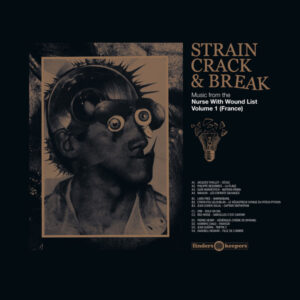Description
FIRST OFFICIAL REISSUE OF ONE OF THE MOST SAMPLED TURKISH RECORDS IN 45 YEARS! SAMPLED BY RAP LEGENDS LIKE SCARFACE OF THE GETO BOYS. TURKISH PSYCHEDELIC MASTERPIECE FROM 1980
Licensed from “Warner Records Sweden” and remastered from original material in Warner Record’s vaults by Shawn Joseph at Optimum Mastering Bristol.
Recorded between Istanbul and Stockholm, it captures the era between Okay Temiz’s Don Cherry Trio touring and his own band Oriental Wind’s sensational debut.
Mentioned distinctive elements have elevated the record to ‘cult’ status among record collectors, sample enthusiasts, and diggers around the world.
By 1980, Okay Temiz had already embarked on a series of dynamic collaborations and sound experiences with Don Cherry as a member of the Don Cherry Trio. This period included a noteworthy summer in the early ’70s at Dartmouth College in New Hampshire, hosted by Jon Appleton, a notable American composer and visionary in electro-acoustic music.
“During that summer, Jon asked me, ‘What kind of sound do you have in mind?’ I had already given this considerable thought, using a tape recorder to capture sound frequencies influenced by the moon’s position. Jon Appleton’s question made me think about the extension of ‘Organic Music Theory,’ which we were exploring with Don Cherry at the time.”
In 1982, Okay Temiz recorded the most comprehensive answer to ‘What is Turkish Jazz?’ at the Montreux Jazz Festival (CAZLP 004) with his band Oriental Wind, featuring Bobo Stenson (of the Jan Garbarek – Bobo Stenson Quartet), Palle Danielsson (of the Peter Erskine European Trio), and Lennart Åberg (of the Scandinavia New Jazz Group).
In 1980, without fully realizing he was navigating between these two worlds, Okay Temiz entered Stockholm’s renowned Metronome studios to record the ‘sound in his mind’ as a solo artist.
`Drummer of Two Worlds` is a star map of Okay Temiz’s musical worlds. Blending elements from the grand piano to his handmade drums, and from the amplified Berimbau to his cowbell array, weaving Turkish rhythms like 9/8 and 7/8 with the universality of 4/4, it presents a unique sound narrative that resonates with the dimensions of a well-traveled mind.”
Haluk Damar




